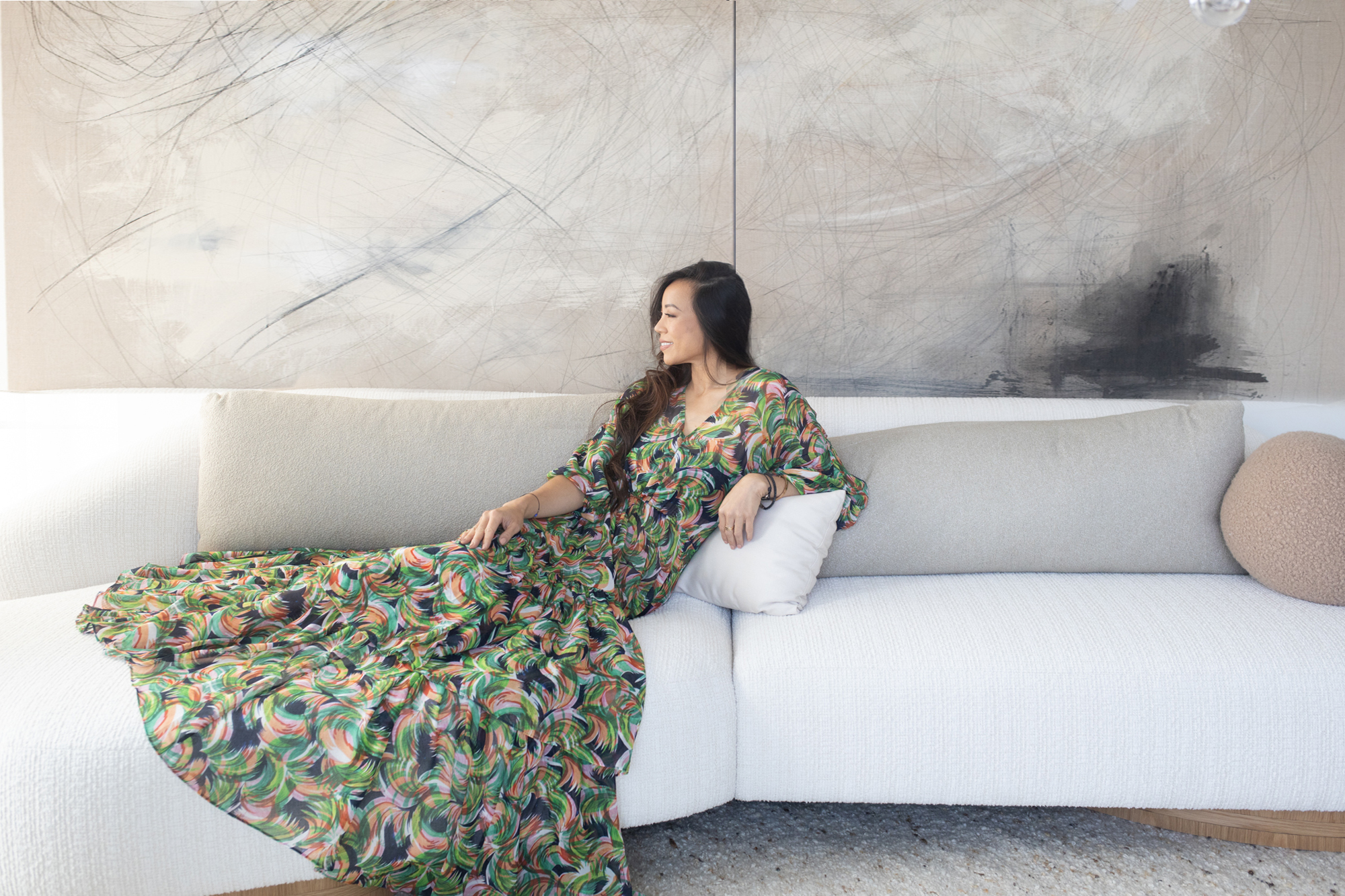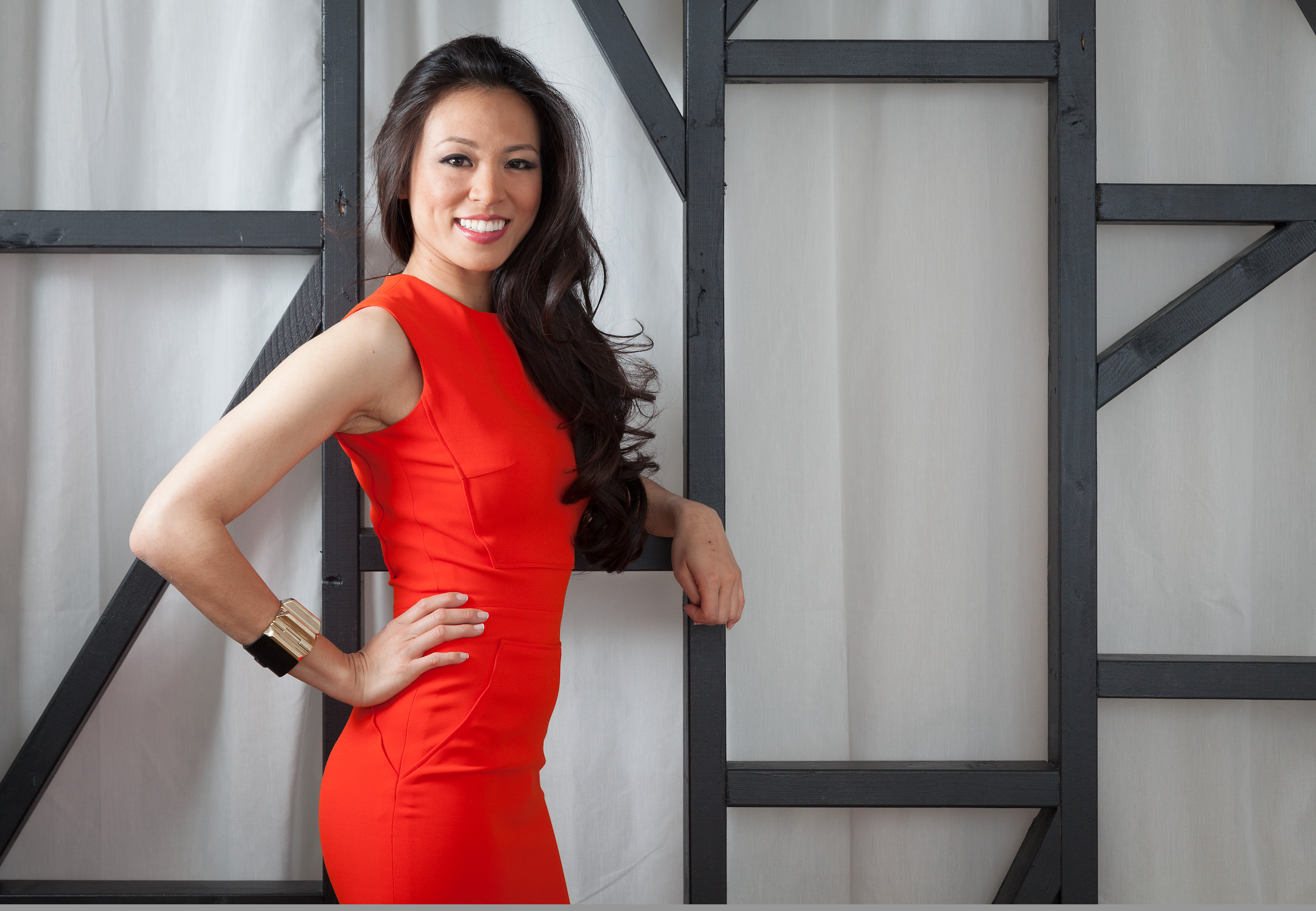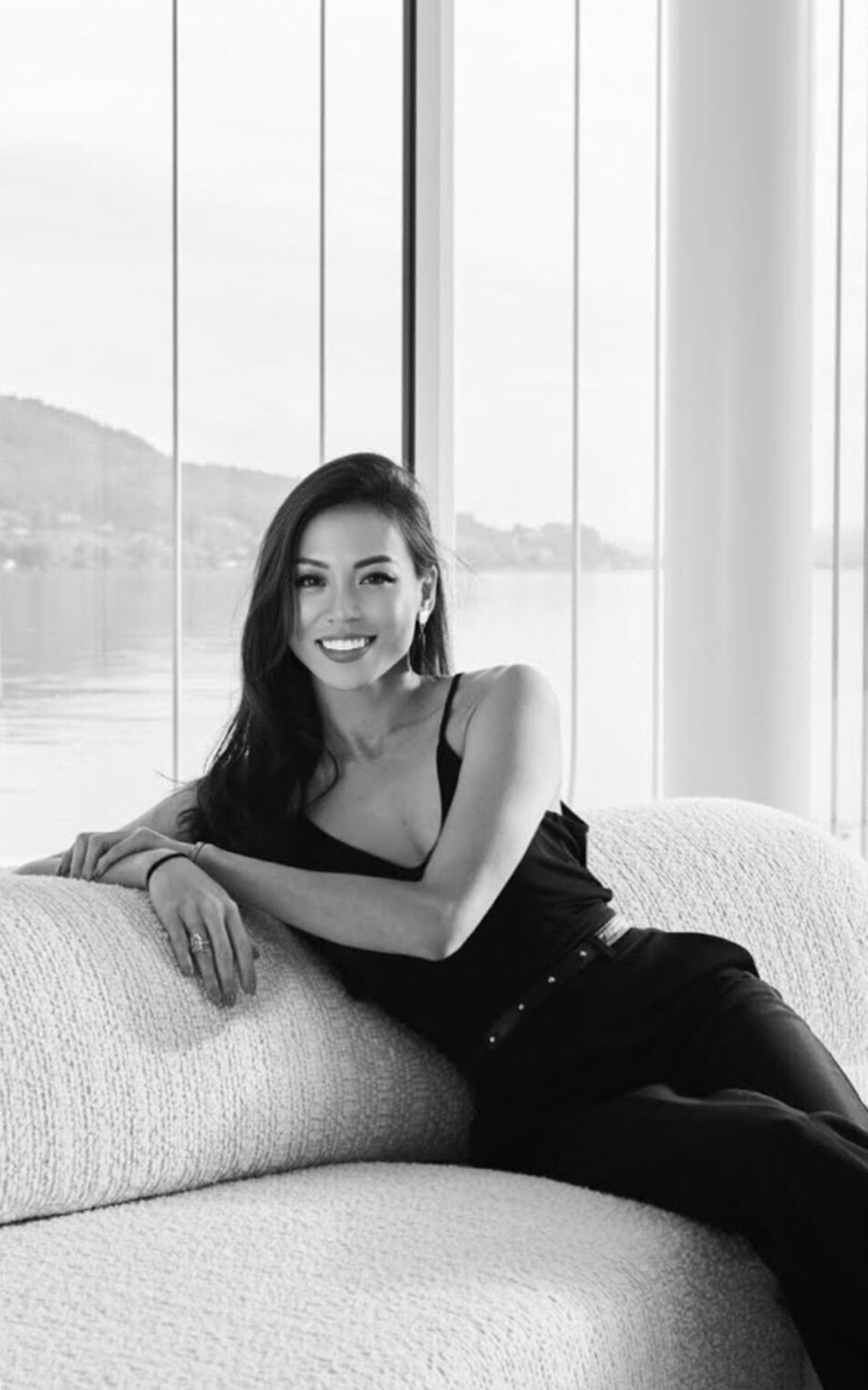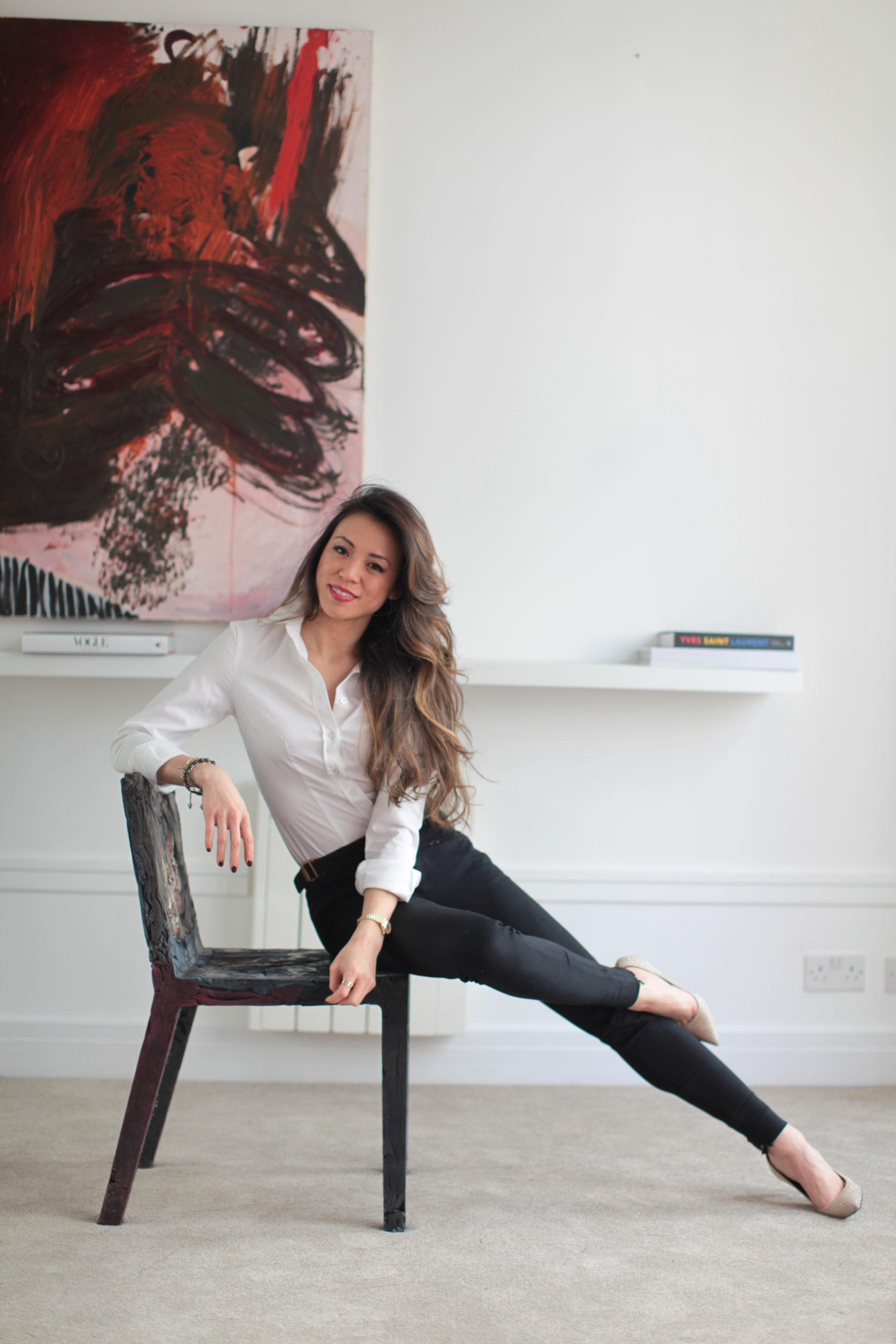
Dara Huang | World Renown Architect DH Liberty
Dara Huang @dara_huang is the founder of Design Haus Liberty; @dhliberty an international architecture, interiors and design practice established in London in 2013, with global offices in both London and Hong Kong. She holds a master’s degree in Architecture from Harvard University and started her career at Herzog de Meuron, Basel and Foster + Partners, London. In the company’s short time, Dara has received numerous awards and honours including Property Weeks 40 under 40, BBC China’s 100 Women, Prestige Hong Kong’s 40 under 40 and three RIBA competition recognitions and sits on the board for Prop Tech and is a member of the Milken Institute. She has also exhibited at Somerset House, London and the Architecture Venice Biennale. Passionate about creating value and leading design in market trends, DH Liberty expands the boundaries of the way architects tell stories through the built environment.
Alongside their luxury clients such as: The Four Seasons, LVMH, Cartier, and Starwood Capital, Dara has co-founded an affordable urban housing platform, Viva House, a sustainable, prefabricated system that combines operations with asset light developments turning housing into a service. She is also interested in democratising design via an affordable and sustainable products ware company with entry level pricing.
The daughter of a NASA scientist who emigrated from Taiwan to the United States, Dara grew up in multi-cultural surroundings and global travel. She has a keen interest in contemporary art and nature, which inspires much of her designs. Read her full story live now! #GOSSMAG
Can you take me back to when you started?
I started in 2013 by myself. It was just me and this intern that I fished out of my old office’s inbox. They said that they would like to work in exchange for experience. I wrote them back and said, “Hey, It’s not this company but I’m starting on my own if you want to hop along.” And he did. It was just me and this intern, and he ended up going to Columbia in New York for grad school, and he’s come back and worked on projects. It’s a pretty great relationship. He’s come out of the closet since then as well. I started above a hardware shop, believe it or not. I shared the office with two friends to afford the rent. I was doing projects for friends that were either in property or that had small jobs here and there because I was building my portfolio.
What made you decide to say, “I’m taking it into my own hands?”
Can I be totally honest? I am a shitty employee. I honestly feel like even if we didn’t do anything, the world has a way of adjusting itself to suit you, and so I was never good at working for other people. I worked for two really big corporate companies. When I started working for smaller companies, I realized that I was a lot more effective. The last company I worked for I started bringing in clients, which is not something I thought I could do. Before I knew it, I had clients that I no longer had to give to my company, I could just take them for myself. I had so much ambition and I had so much to give, and I wanted to earn something, and I kept asking for partnerships because there was so much I wanted to change in the small companies that I didn’t like. My boss was already jaded. He wasn’t even president. When I finally got a client, I just started my own company. I didn’t have any real responsibilities. I wasn’t married and I didn’t have kids. There was no risk. I had nothing to lose. It was the most fun thing I had ever done.
I am resilient as f*ck. I have the skin of a gator. You can’t even imagine the shit I’ve been through. You get a little bit of success, and people pounce on you for cash. We’re a small growing company, leave me alone. I had to pay my ex out, I gave him 100k in cash. I had some directors that wanted to get pay put. Everyone wants equity. Everyone wants a piece.
I didn’t just say any of that shit. Delete everything that I said about my directors and my ex and all of that. I will definitely say I am very resilient. For as much as I’ve been burned and all the hardships I’ve gone through, I will say I am a much better businesswoman now. I am so much smarter. There’s only one way to learn, and it’s the hard way. You have to touch the stove to find out.
What are some of the things that were the hardest but the best lessons?
I could tell you the real version then I’ll tell you the mediocre version. The hardest lesson is learning that partnership doesn’t last forever. That’s negative. The only person you cannot replace in the company is yourself. That is 100% true. Anybody who is a CEO who has run a company for long enough has lost someone they thought they couldn’t live without in their company. I am stronger because of it. I was forced to learn everything about operations and finance. Because of that, I have made this company better. Another one that goes along with that, and my friend told me this saying and I didn’t understand it until now, it’s: never fear the empty seat. I think, especially in this day and age when you’re hiring a lot of millennials and the turnover is higher than it was 5 years ago, you can’t freak out and stress and hire someone and they’re not the right person.
You’ve gotta be patient. Another one is fire quickly. I suck at that. It took me a long time to be like, “oh, where is that -30 deficit coming from?” One thing that’s come out of this generation is that you get a lot more freelancers and contractors, and actually, it’s so much better for cash flow. It’s much healthier to hire people on contracts. You need a few permanent people to build the company culture, but you really need to meet the need. The rest, you can contract them because it’s better for cash flow. I have a ton: don’t put all your eggs in one basket. It’s not enough that you have to dodge political strifes, but you also have to dodge pandemics. People don’t realize how closely businesses are to macroeconomic, political issues are. You literally have to have your finger on the pulse of everything that’s happening everywhere in the world. We know what’s happening because it affects us. It’s so important. Everyone business is a ripple effect.
This is something that I literally learned last year, and a few famous entrepreneurs said the same thing. A company is still young even at 10 years. You are a young company until 10 years. You can’t take cash out of a company until year 12. All that working capital, you need to reinvest back into your brand. Only after year 12, you can take it out. You are reinvesting year after year up till year 10. I’m in year 7 right now. What I didn’t know is that year 5-6 is when your company really grows up. Anytime before then you’re just running to keep up. You do things here and there but you don’t have pensions set up. Right now we have health insurance, pensions, gym memberships, incentives, teeth cleaning. You name it. It took me up until 6 years to get that. You’re still a young company until 10 years. This is why I was burned last year, and this is confidential as well, but I had some directors leave and they asked for profit payout. I was like, “are you fucking naive and stupid?” I’ve never taken money out, there is no money to take out because we reinvest it.
I think another thing I didn’t realize is if you’re in the service industry, finance, law, architecture, like most professional industries, a pipeline business means that you can’t stop going. You need to keep going. Until you can find a way to not be in a service industry, you have to keep going. The boat keeps getting bigger and bigger. It’s such a chase.
Are there things in your industry that are becoming less service?
In year 5 and 6, and even now, I’m experiencing the power of a brand. At first, people hired us for our service, and now they come to us for our brand, because we are actually selling their assets. Our value-added isn’t just our talent, it’s our brand association. You’re still young at 10 years, you’re still building your brand.
I think that it’s not less service, but it’s once you hit a certain point where you’re getting more demand, you have the ability to price yourself out of things. If they say yes because they can accept it, then even better. The power to say no is really amazing and it’s a really difficult place to get to because it means that they’re not afraid of letting things go. It means that the right project at the right price will come if you stand your ground. It takes a lot of confidence to do that, especially when we’re in the pipeline industry. It’s kind of the only way to set standards for yourself.

Where do you see the architecture and design heading now?
This is where I see the property industry heading is that even 3 years ago or even 2 years ago, you could build a building and have it fully purchased or let. You could easily go to a consumer with a building, and it would be fine. This is happening in America. Today, you can no longer go to the market with a building. All of a sudden it needs a brand, a name, and an identity. It is becoming a lot more design focus. Before, in Europe, you could have an office building and lease every floor and be fine. Now, you can’t. They need a name, like the white-collar factory. They need some buzz that the consumer has become particular with who they identify themselves with. It’s definitely the consumer that’s driving the market for demand in terms of properties. That’s why brand and design is such a huge focus right now. If you go to the West with a plain building, you really struggle in the market. Now, it’s pushing creatives to the forefront. All of a sudden, we are the most important tool for the financial world. Creatives are dominating right now and 100% within the next few years you’re going to see the creative world trumping all the financial fields. It’s what the people want, you can’t really ignore the demand, following, social media. People don’t want boring, they want brands, experience, different sensations.
Now looking back at the experience you’ve been a part of, and building your brand, you’re not even at the 10. What do you see the future of your brand developing into?
I’m really interested in focusing on building my brand. I would say that even 5 years ago, the definition of building a company meant more people. I think with influencer technology, the definition of building a big company is influence. It doesn’t have to do with your people anymore. I really think that, and you know this, it’s not about your revenue, it’s about your profit margins. If you can run a really lean team and get bigger numbers, that’s a new way of building a company. For me, I’m really focusing on brand and brand value. That’s why I’m designing a new furniture collection. The only way to truly democratize design and get a business to consumer relationship is to create an affordable range of designer pieces that people can put into their homes and you can start to democratize something that was traditionally for the people that could afford it. Designer stuff is expensive.
We’re trying to break those barriers down. I think that the way the world is going is much more transparent, easy to access, easy to consume. We are trying to do things that break the traditional barrier bottlenecks. It’s a concept right now. We’re launching a B2B business first. The whole reason I need to do a B2B business first is that if I sell out bulk, then I can generate a lot of revenue that I can reinvest into B2C. The B2C business is almost like writing that book. You don’t make any money out of it because logistical costs are so high. You do it for marketing reasons, and that’s the only way to get the brand out there. People that aren’t developers know who you are.
Would you do that under the same label?
The furniture collection that is coming out, which is very brave, I’ve named it after myself. It’s just called Dara. I have this entire meeting today with my client’s coms company and they said I couldn’t talk about this furniture company with anybody. I’m clearly shit with media. This thing with media is that they have to do things a month in advance and they’re all waiting to launch everything in May and there are a lot of magazines that are coming to me that I have to shuffle to them.
I had these directors, they all left at the same time out of coincidence. I was so hurt. Now that they left, I feel like a free bird. I was trying to be a democratic member, but It’s my company and I’m going to name a furniture company after myself. You really have to get hurt in order to grow. There’s a quote.
How do you dissociate yourself from not taking it personally?
I used to work for a big corporate company. There were like 400 people. I used to hear that if you left, the owners took it personally. I never understood it until I became the owner of a company. I understand that now. I honestly think that there is no way to not take it personally. Think about the flip. If someone fires you, can you not take it personally? No. It’s a reflection of yourself. I don’t think there’s any way around that.
How are you coping with turnover and the day-to-day of owning a business and being in a business?
Dara: 2019 was the worst year of my life. I grew so much. I learnt so much. I became so much better. I don’t regret any of it. One thing that happened is that when my finance director left, I was forced to step into those shoes, and it is the most rewarding thing I’ve ever done as a businesswoman. I always thought I had good intuition, and I didn’t know if it was true or not. I started changing the way we structured payments, the way we structured fees. I could analyze some of the issues around the business and capturing finance. I’m a really big picture analytical business thinker. I was able to go in and start changing things, even in the first week that I was in ops. It’s just intuition. Something doesn’t feel right. We give people raises every year because of inflation, but we hadn’t inflated our rates. I honestly think so many people feared change, but the only thing that can make someone better is through change. It was so hard, but I feel like I became a way better businesswoman.
I think the next destination is definitely the USA. To come full circle, it’s home for me. The reason I didn’t do the Americas is that I’d be awake for 40 hours a day. When you do Europe and Asia, it’s still okay. You’re only 5 hours apart. You do the US, you’re 12 hours apart.
Growing your brand, you want to go B2C?
I think that’s how you can grow your brand. Today, the consumers have more power than they’ve ever had in the entire history of mankind. The only reason we have so much power and demand is through social media. You see politicians swimming. Technology had made a ton of small voices turn into big voices. Before in property, it used to be the person with money, so the fund, would decide what to build and they would shuffle it down and charge people what they wanted. Now, it’s the other way around. User demand would tell you what they wanted to see, and they created all this transparency to create free markets. The world is just going to keep going that way. We need to reinvest the professions or there won’t be any demand for what we service. If you don’t create a relationship with your consumer, you can’t really grow with your brand. I’ve always been about impact. The reason I chose this profession is that I thought this had the biggest impact out of everything else I was doing when I was going through my confusion stage and I didn’t know what to do.

What’s the best part about owning your own business ?
I think it’s far more rewarding in terms of wins. Money is our focus. We start with vision then when we’re running the business we start with money. I’m not in here for the money. Money grows a company. It’s what makes a business run. It’s everything that comes around it. The wins are so much greater. It’s yours.
When did you feel successful?
To be honest, I don’t think any entrepreneur is ever satisfied with what they have. If you were to ask me if I built my greatest present, I’l be like hell no. I feel like there’s so much more to build and to explore. I noticed only within the past 4 months that I started getting recognized, which is a little bit weird. I don’t think that that’s what success is. I don’t know the answer to that. Do you think if we were satisfied we’d work like this? No. I remember 5 years ago, I would dream about the projects we have now, and now we dream about the projects we don’t have. You would have killed yourself to have Ferrari as your client, and now you’re like, “what’s next?”
Is it because you know your capabilities grow?
I think that all entrepreneurs want to impact in some way. You built a magazine on female impact. It’s not because you wanted to be an editor. You wanted to impact the females around you and you wanted to influence. We always feel like there’s so much more to do that is greater than ourselves. Running a business is very humbling because you’re constantly being slapped around all the time. I think what people underestimate is time.

Get your hands on the latest tips and tricks of what it means to be a #GOSS. In this free e-book you will dive into 11 business traits that will help you grow your business!
11 Ways To #BeGossy E-book
FREE DOWNLOAD
Find out more inspiring stories from women worldwide of all industries. Follow us on Instagram @GossMagazine.
website design Credit
© Goss Club Inc. 2024 | all rights reserved |
Inspiring & empowering women worldwide.
© GOSS CLUB INC. 2024 | all rights reserved
Share to: